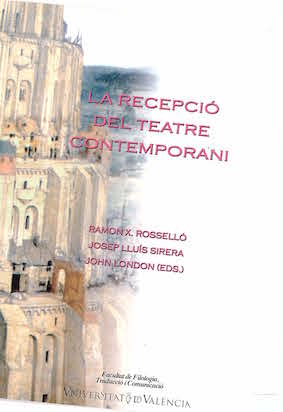Text, Lies, and Linguistic Rape: Rewriting Theatre History in the Light of Dramatic Translations
DOI:
https://doi.org/10.7203/qf-elit.v15i0.3986Keywords:
translation, theatre history, Sarah Kane, Dario Fo, Eduardo De Filippo Abstract
Abstract
Translations of foreign dramatic texts are as much a part of theatre history as plays written directly in the language of the nation concerned. However, they are rarely studied in such a context, even though the fame of dramatists tends to be based on their presence in languages other than their own. The assumption is that the same identity is maintained abroad. This article suggests five categories in which the translation of modern drama could be analysed, with a selection of the ways in which well-known plays have been distorted. Sometimes the text used as a source for translation (1) creates a very different impression from the original, as in the case of Arrabal and Beckett. Linguistic inadequacies in translations (2) transform writers such as Harold Pinter, Arthur Miller, and Sarah Kane. The search for impossible cultural equivalents (3) likewise produces versions distant from the originals of Valle-Inclán and Eduardo De Filippo. Socio-political contexts (4) can also affect the nature of texts by Tennessee Williams and Brecht, whereas the conditions of performance (5) are often the cause of misinterpretations of a dramatist such as Dario Fo. The Conclusion outlines how these practices continue into the twenty-first century with very little critical awareness that they are occurring.
 Downloads
Downloads
Downloads
How to Cite
-
Abstract197
-
PDF (Español)326
Issue
Section
License
 Este obra está bajo una licencia de Creative Commons Reconocimiento-NoComercial-SinObraDerivada 4.0 Internacional.
Este obra está bajo una licencia de Creative Commons Reconocimiento-NoComercial-SinObraDerivada 4.0 Internacional.
Authors who publish with this journal agree to the following terms:
- Authors retain copyright and grant the journal right of first publication with the work simultaneously licensed under a Creative Commons Attribution License that allows others to share the work with an acknowledgement of the work's authorship and initial publication in this journal.
- Authors are able to enter into separate, additional contractual arrangements for the non-exclusive distribution of the journal's published version of the work (e.g., post it to an institutional repository or publish it in a book), with an acknowledgement of its initial publication in this journal.
- Authors are permitted and encouraged to post their work online (e.g., in institutional repositories or on their website) prior to and during the submission process, as it can lead to productive exchanges, as well as earlier and greater citation of published work (See The Effect of Open Access).




